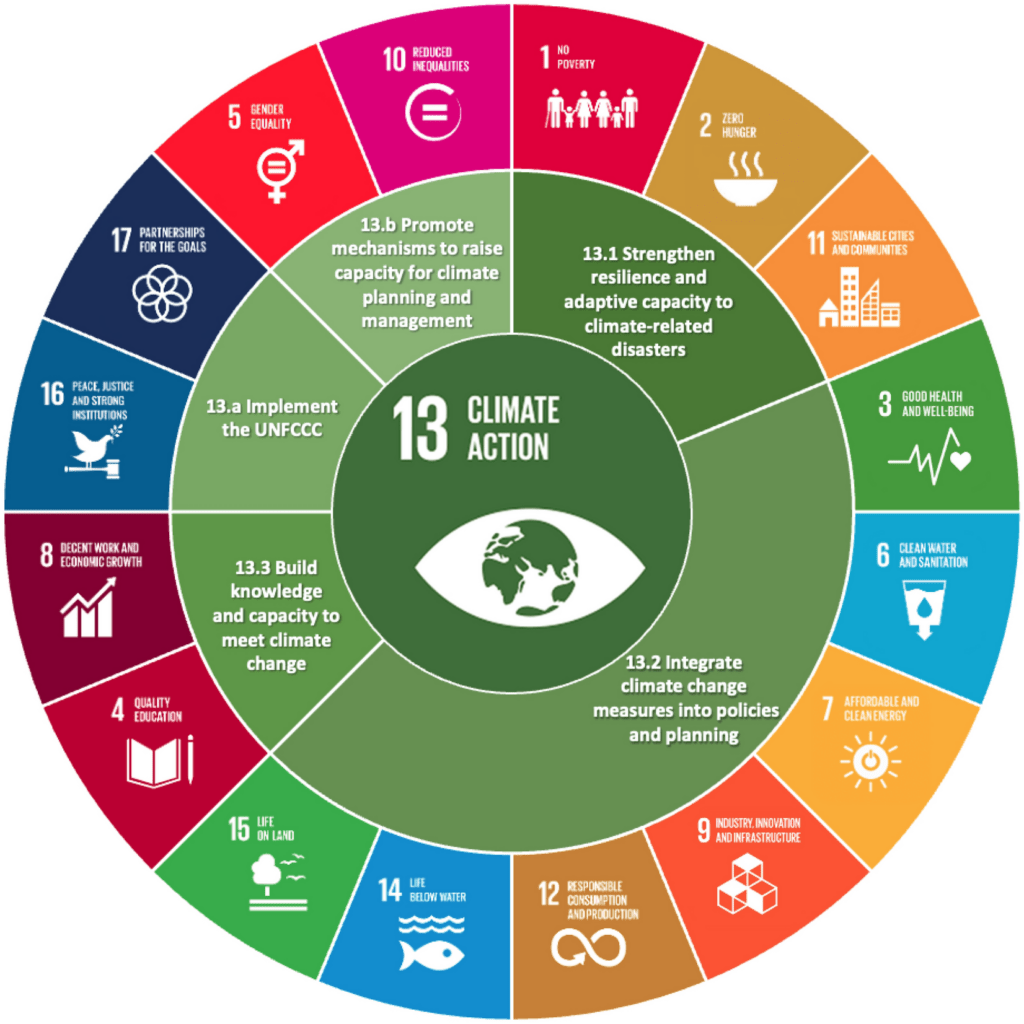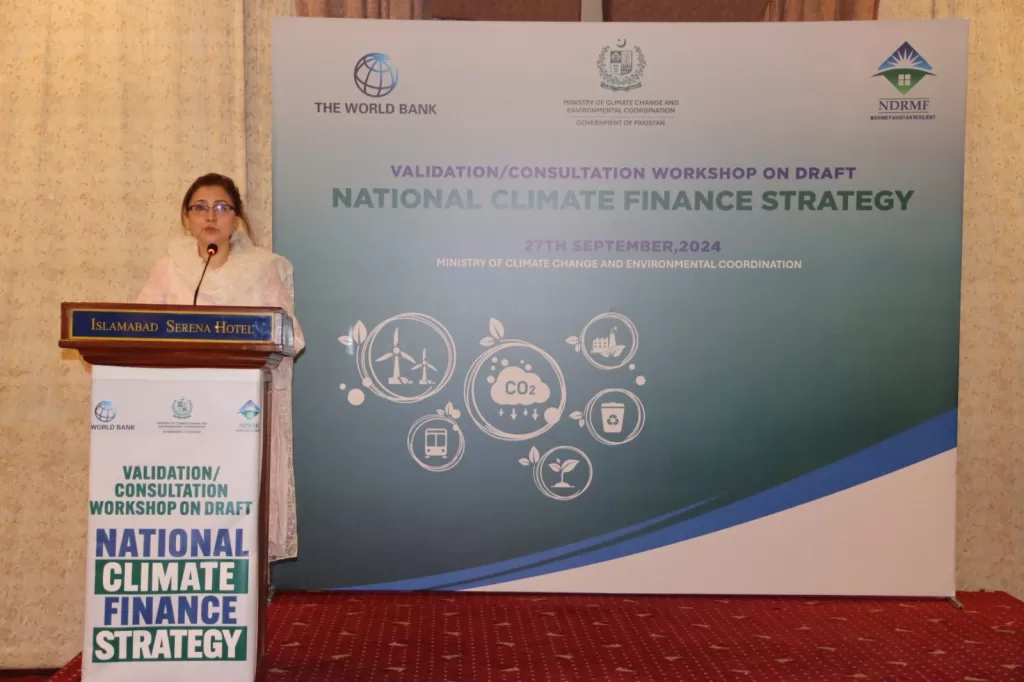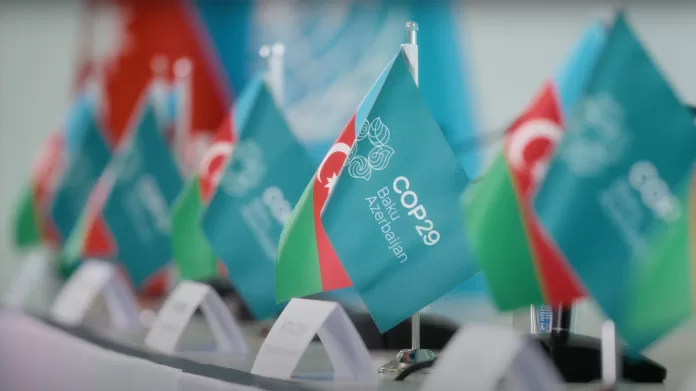COP 29, the Conference of Parties to the United Nations Framework Convention on Climate Change is currently taking place in Baku, Azerbaijan from November 11th to December 20th, 2024. These meetings are crucial as they bring together world leaders, policy makers, and civil society from all across the world to discuss global climate action. The world today is witnessing severe impacts of climate change, such as melting glaciers, flash floods, increased heatwaves, and rising sea level. Despite contributing minimally to climate change, Pakistan is facing the brunt of its impacts, making it a prominent example of climate injustice. This paradoxical situation emphasizes the urgent need for international climate financial support to fund Pakistan’s mitigation efforts, as the country lacks sufficient resources to address the issue. Against this backdrop, Pakistan’s role in COP 29 will be crucial in advocating both climate justice and climate finance to support vulnerable states like itself. Amid all this, COP 29 serves as a platform for developing countries to attract climate finance from the developed countries to address these issues.
Despite contributing less than 1% of global carbon emissions, Pakistan, with a population of 240 million and an agrarian economy is among the top four countries that are highly vulnerable to the disastrous impacts of climate change. The country is experiencing frequent and intense climate change impacts, including erratic rainfall patterns, catastrophic floods, and changes in weather patterns, resulting in the exacerbation of poverty, migration, food insecurity, economic insecurity, and health insecurity, all of which collectively disrupt livelihoods. For example, the flash floods of 2022 resulted in an economic loss of $30 billion, impacted 20 million individuals and displaced nearly 1.7 million individuals.

For Pakistan COP 29 serves as an opportunity to secure financial aid from the international community to scale up the projects of climate resilience and adaptation projects on a large scale and to achieve the targets of their National Determined Contributions (NDCs) in compliance with the Sustainable Development Goal 13 (SDG-13): Climate Action by 2030.
COP 29 is expected to focus on key themes such as mitigation, adaptation, energy transition, and climate finance for vulnerable and developing states. Adaptation involves helping vulnerable states to cope with the impacts of climate change by improving infrastructure and strengthening disaster resilience. Pakistan, which is currently experiencing serious consequences of climate change, including loss of life and economic damage, as well as exacerbating water and health insecurity, requires early warning systems, climate-resilient technologies, technical assistance, drought-resistant crops, water management, and infrastructure that can withstand extreme weather events. At COP29, Pakistan advocated for financial support for the implementation of adaptation initiatives at the national level and also highlighted the significant amount of loss sustained by the state due to climate-induced disasters in order to secure a significant proportion from the Loss and Damage Fund.
Additionally, energy transition, which aims to reduce reliance on fossil fuels, is another key theme of COP 29 to mitigate the impacts of climate change impacts. COP 29 is likely to emphasize upon the importance of developed states, providing financial and technological support to developing or underdeveloped states for a successful energy transition.
In this context Pakistan has enormous potential for solar and wind energy, but faces significant obstacles in implementing the energy transition. Techno-economic constraints are the crucial factors that hinder Pakistan’s successful energy transition. In this context, Pakistan has formulated its National Determined Contributions (NDCs) and has significantly reduced its carbon emission by 30% from its renewable energy sector, but requires substantial resources for the remaining 70%. At COP 29, Pakistan has the opportunity to attract significant economic and technological resources from the Green Climate Fund for a successful energy transition. This energy transition not only reduces greenhouse gas emissions but also has the potential to generate several jobs in the green and clean energy sectors, promoting economic growth in Pakistan. Additionally, Pakistan can also attract international partnerships for grid infrastructure and off-grid solutions to ensure a smooth energy transition.
The Pakistani delegation participating in COP 29 comprises a diverse group of government officials and representatives focused on addressing climate change while advocating for climate finance to mitigate its impacts. So far Pakistan has participated in discussions around the Global Goal on Adaptation, which highlights the need for adequate funding to support developing countries like Pakistan in overcoming the effects of climate change. As part of this, Pakistan presented its National Climate Finance Strategy (NCFS), which put forward a roadmap to attract both international and domestic funding to address climate-related challenges. The strategy aims to secure $348 billion by 2030 to address the vulnerable impacts of climate change.

Pakistan also recommended to increase transparency in climate financing and showcase its noteworthy projects such as the Recharge Pakistan Initiative and the Living Indus Initiative; these initiatives reflect Pakistan’s efforts towards sustainability and climate adaptation. Pakistan also aims to collaborate with developed countries in the areas of smart agriculture to enhance its national climate action agenda. The country also places a special emphasis on securing climate finance through the New Collective Quantified Fund (NCQF) and the proposed Climate Finance Action Fund.
In a nutshell, COP 29 presents a decisive moment for Pakistan to prepare itself with regard to climate change, being the fifth most vulnerable country vulnerable to its effects, and while attending the conference, the country must also actively negotiate for substantial climate finance.
As an agrarian economy, Pakistan requires significant resources to implement mitigation and adaptation efforts on a large scale initiated by the Government of Pakistan. COP 29 will exemplify itself as a launching pad for Pakistan to captivate international climate finance to tackle the catastrophic impacts of climate change. Securing climate finance will not only promote environmental sustainability in Pakistan, but also boost its economic growth and in time will position it as a leader in climate action.
This conference is seen as a tremendous opportunity for both policy makers and politicians to accelerate climate action; it is noteworthy to mention that COP 29 is not just a diplomatic platform, for Pakistan it is a rostrum to acquire urgently needed funds if it is to protect itself from the impacts of climate change.





